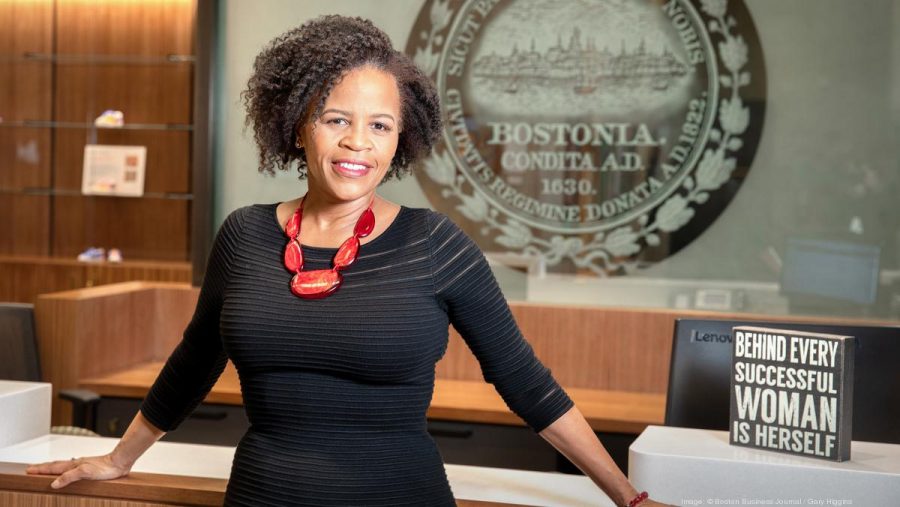Representation Matters: Why the Appointments of Kim Janey and Deb Haaland Are Important
Historically, the word diversity has not often been associated with politics. However, in the past few election cycles, diverse candidacy has become increasingly important to voters. One can see the significance of this issue in the recent election of Kim Janey, Boston’s first Black and first female mayor, as well as the recent appointment of Deb Haaland, the first Native American secretary of the interior. These two women symbolize more than just their role as public servants. Their tenacity and integrity have allowed them to redefine the possibilities of politics for women of color.
For too long, politics has been a profession for straight, white men, which is about as far away from a diverse candidate as one can get. The complacency that has led to this norm has undoubtedly created more harm than good. Our governments should represent the people that they serve. President Biden had been vocal about his intentions to diversify the field before his election, and he has kept his promise. Although we currently have the most ethnically diverse cabinet in history, the Biden administration’s precedent must be consciously preserved and continued. Diversity in politics at every level is still a widespread issue, and keeping this in mind should be a priority for all voters.
As Boston’s mayor, Kim Janey has chosen educational equity as one of the main issues her platform aims to remedy. She grew up in Roxbury, a predominantly Black community within Boston. However, she attended school in Charleston, where Irish-American households were the primary community members. Despite growing up in the 1970s, Janey was subject to constant physical and verbal harassment from classmates during Boston’s attempt to permanently desegregate schools. This experience was a marker in her formation and drew her to campaign for educational equity.
Her immediate goals as mayor are “fair vaccine distribution, especially getting more shots to underserved Black communities, returning children to school safely and centering disadvantaged workers in the city’s economic recovery.” Janey’s election occurs at an important time in Boston’s history, where people of color are still systematically undervalued and underrepresented. Despite being “the home of abolitionism,” citizens of color are still fighting for equal quality of life. Boston’s police force is disproportionately white, wage gaps for people of color are apparent and predominantly Black neighborhoods are underfunded in every sense of the word. Janey’s election symbolizes a new era of healing and attentiveness to the needs of people of color who have barely been represented in the Bostonian government.
Deb Haaland, the first Native American Secretary of the Interior, is creating similar waves for people of color on the federal level. While there have been four Native American senators and just over a dozen Native American Representatives in our country’s history, Haaland is the first Native American to hold a presidential cabinet position. This appointment is incredibly significant in our nation’s history due to the dark relationship between the Interior Department and indigenous people in America.
NPR explains the racism and dark past between the two parties: “The Interior Department was used as a tool of oppression against America’s Indigenous peoples. In addition to managing the country’s public lands, endangered species and natural resources, the department is also responsible for the government-to-government relations between the U.S. and Native American tribes.”
Considering this position deals so closely with Native Americans, it is shameful that no other president in history has taken the initiative to appoint someone who best understands the complicated relationship between indigenous peoples and the United States government. Haaland has made environmental conservation in all 50 states and combating climate change her main goal, citing her cultural roots as what drives her to protect “Mother Earth.”
It is incredibly compelling and inspiring to see two intelligent women of color disturbing our political system’s status quo. It is very long overdue. While they are both newly elected, the mere fact that they have gotten their foot in the door emphasizes the increasing possibilities for people of color to partake in their rightful leadership in social justice and public service.
Despite President Biden’s election being a paradigm of just how far our country has to go in terms of diversifying the political sphere, he has set a precedent for using the privilege of holding the highest office in the country to elect members who best epitomize the country they are representing. President Biden, and the other 43 white male presidents for that matter, all automatically assume the innate privilege that their gender and the color of their skin gives them.
Upon choosing public service as one’s profession, a certain level of selflessness and awareness should be assumed. The combination of privilege and choosing this line of work necessitates a responsibility to help create equity for groups of people who have been historically marginalized. President Biden has committed to using the privileges that practically encouraged him to pursue an ambitious career in public policy by appointing the most diverse cabinet in history. His conscious and calculated decision to create a cabinet that represents America is incredibly empowering for all the people of color who have never seen themselves represented in government.
Representation matters and only positive change is born out of having a diverse consortium of people in our government. Our country is not made up of only straight, white men over the age of 65. Why should our policymakers be limited to this construction?
Michela Fahy, FCRH ’23, is a humanitarian studies and English major from Cedar Grove, N.J.










































































































































































































